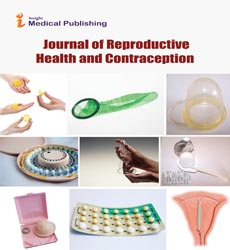Rural-Urban Differential of Contraceptive Knowledge among Unmarried Women in India
Raj Narayan
Abstract
A large number of girls get marriage at very young age and immediately are exposed to the risk of bearing children in India. Many marriages in India are celebrated well before the legal age has pointed out as 34 percent of the adolescent girls aged 15-19 years. The objective of this is to examine the rural urban differential and determinant of knowledge of family planning methods in India. This study utilize data obtained from third round of the District Level Household Survey which is conducted in 2007-08 in 601 districts from 34 states and union territories of India. DLHS- 3 was conducted by the International Institute for Population Sciences Mumbai under the stewardship of the Ministry of Health and Family Welfare, Government of India. The study uses bivariate absolute difference, relative difference and multivariate techniques to understand the knowledge of family planning methods among unmarred youth women living in rural as well as urban area of India.
Open Access Journals
- Aquaculture & Veterinary Science
- Chemistry & Chemical Sciences
- Clinical Sciences
- Engineering
- General Science
- Genetics & Molecular Biology
- Health Care & Nursing
- Immunology & Microbiology
- Materials Science
- Mathematics & Physics
- Medical Sciences
- Neurology & Psychiatry
- Oncology & Cancer Science
- Pharmaceutical Sciences
